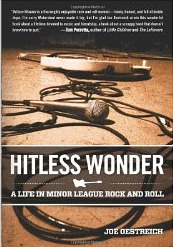Find Your Writing Niche: Learn from your friends and colleagues
 Writers know to read and study “How to” books to improve their writing and to study the masters, e.g., Hemingway, Steinbeck, Oates, Didion, to grasp the nuances of the written word. Writers’ groups, critique partners and Beta readers help us streamline our words, but on our journey to our goals, there is another source to investigate. We can study the books our friends, associates and contemporaries write. Their styles, their turns-of-phrase, their similes and metaphors may hit a chord with us and inspire us to find the words we need to complete the sentence, description or image.
Writers know to read and study “How to” books to improve their writing and to study the masters, e.g., Hemingway, Steinbeck, Oates, Didion, to grasp the nuances of the written word. Writers’ groups, critique partners and Beta readers help us streamline our words, but on our journey to our goals, there is another source to investigate. We can study the books our friends, associates and contemporaries write. Their styles, their turns-of-phrase, their similes and metaphors may hit a chord with us and inspire us to find the words we need to complete the sentence, description or image.
Some of the books that impress me are not bestsellers, but the way the authors fit the words and images together are like a completed jigsaw puzzle and stimulate my creativity.
One such book is “Hitless Wonder, A life in Minor League Rock and Roll” by Joe Oestreich. He teaches creative writing at Coastal Carolina University in Conway, S.C. and continues to go on tour with his band, Watershed. Still seeking musical fame? Maybe, although the band knows their window of opportunity is not wide open.
On the first page of his book, he writes: “Pre-show jitters have me shifting from my right sneaker to my left and back like a kindergartener ten kids deep in the restroom line.” Everyone can identify with that image, a perfect description.
Further on: “Like most of our generation, Colin, Dave and I grew up wanting to be the KISS characters. Even now, almost middle-aged, we sometimes slip into KISS alter egos…” This image can recall idols we admired as children and wanted to imitate.
 Another writer I admire is Lyla Dune. In “Low Tide Bikini,” the first in her Pleasure Island Romance series, her protagonist, Samantha “Sam” Carlisle, projects a realistic understanding of life and a fine-tuned sense of humor. To get an insight into Sam’s tolerance level: “Patience in the morning? That’d require Prozac.” Then: “She tilted the rearview mirror, dangling from her windshield by a piece of duct tape.” When Brock Knight, the antagonist, walks into the venue where Sam is playing double bass in her band, Bikini Quartet, she sees him as “a young Sean Connery with mega-muscles….Sam was shaken and stirred.”
Another writer I admire is Lyla Dune. In “Low Tide Bikini,” the first in her Pleasure Island Romance series, her protagonist, Samantha “Sam” Carlisle, projects a realistic understanding of life and a fine-tuned sense of humor. To get an insight into Sam’s tolerance level: “Patience in the morning? That’d require Prozac.” Then: “She tilted the rearview mirror, dangling from her windshield by a piece of duct tape.” When Brock Knight, the antagonist, walks into the venue where Sam is playing double bass in her band, Bikini Quartet, she sees him as “a young Sean Connery with mega-muscles….Sam was shaken and stirred.”
The second book, “Ebb Tide Bikini,” proves to project as much humor. Dune describes the protagonist, Mazy Washington, as “a redheaded mechanic who drives a pimped out purple hearse and has a pet pig named Rooster.”
We can learn from our associates and develop our creativity by concentrating on their works.